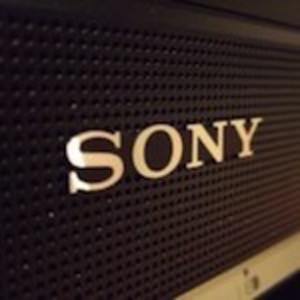Once upon a time, Sony was what Apple is today: The premier brand in consumer electronics, a wellspring of innovative products that customers gladly paid a premium for. Not anymore. Sony shares have lost more than three-fourths of their value since 2007 as its losses have mounted, totaling nearly $11 billion over the last four fiscal years. Nonetheless, last week ranks as one of the worst in Sony’s 66-year history. Here are six things that made the last seven days so rotten.

• Monday: Sony’s shares on the Tokyo Stock Exchange fell below 1,000 yen for the first time since 1980. That marks a 94% decline since the stock’s record peak back in 2000. Adding insult to injury, the dispiriting drop came only weeks after the company unveiled a strategy for returning to profitability.
• Monday: The company’s latest offerings received lukewarmreviews at the E3 gaming conference. New CEO Kazuo Hirai is looking to the PlayStation and Sony games to return the company to profitability. He needed a home run, but he ended up bunting safely to first base. Hirai did little to show that Sony is dealing with the migration of gamers to smartphones. Meanwhile, Microsoft said its Xbox 360 will stream games to smartphones. The Xbox also seems better equipped to merge with digital TVs.
• Tuesday: a Morgan Stanley analyst warned that Sony could exit the television business, a core area since 1960. Sony’s TV operations have lost money for eight straight years. Morgan Stanley’s Masahiro Ono expects the company to keep losing as much as $628 million a year through 2013, although Sony told investors it expects the unit to be profitable next year.
• Tuesday: Sony executives learned they are getting a pay cut. The company wouldn’t say how steep the cuts would be, although seven top officers agreed to forego their bonuses for the fiscal year that ended in March. Still, 21 of the company’s executives took in a collective $10 million last year, even as they decided to cut 10,000 rank-and-file jobs.
• Wednesday: Research firm Strategy Analytics announced that consumers around the world prefer the Samsung brand over Sony. The firm’s research found that Samsung had jumped ahead of Sony as the preferred consumer electronics brand. Sony, however, remains in second place, although Strategy Analytics says Apple is quickly gaining in popularity among global consumers.
• Friday: Pundits looking forward to Apple’s WWDC confab speculated that Cupertino would announce its own television set as early as next week. That would add a powerful new competitor to the industry and put Sony TV business even further behind the curve. The company that created the Trinitron – once the gold standard in TV sets – was slow to embrace popular technologies like flat-panel displays and cut back on its world-class R&D as upstarts like Samsung were investing in engineering. Now it may be too far behind to catch up with more forward-thinking competitors.
Can Sony
turn itself around in time to save itself
? Fifteen years ago, the prospect of Sony fighting for its life was unthinkable. But the company has missed out on so many innovations – not just flat-panel TVs but MP3 players, smartphones, tablets and, in many ways, the Internet itself – that it’s going to have to be very creative if it wants to find its way back to the forefront of consumer electronics.

















